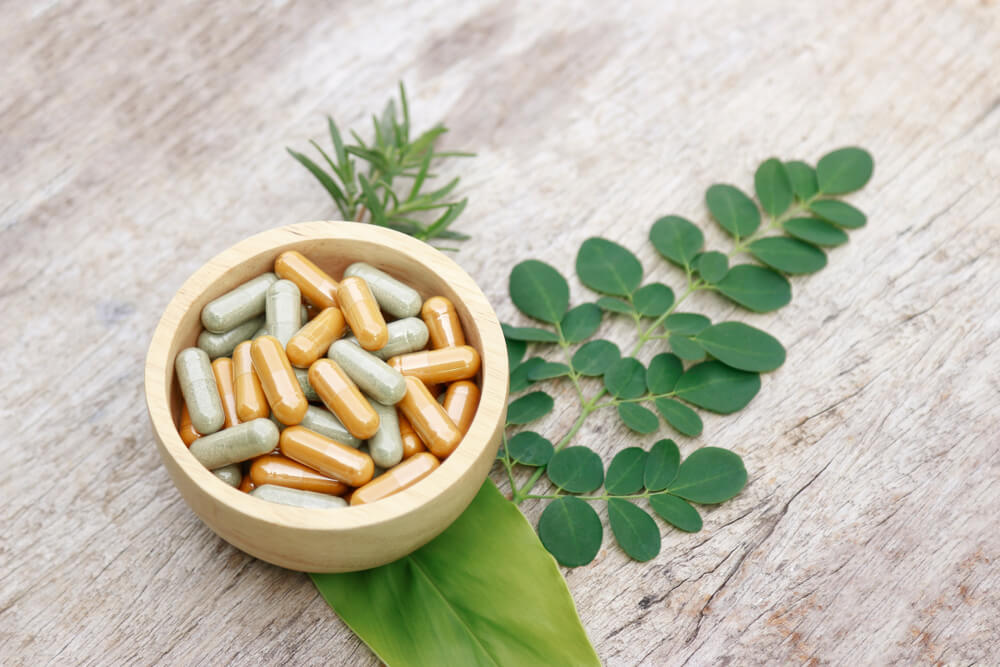Everything You Need To Know About Curing Laryngitis Naturally!
Has it ever occurred that you opened your mouth to talk and all that comes out of it is nothing more than a squeak or whisper? Well, there is a high chance that you’ve got laryngitis leaving you wonder how did this happen and what can you do to get rid of it. In this post, we will discuss everything you need to know about the condition and effective remedies to cure laryngitis.
Table of Contents
What Is Laryngitis?
Laryngitis is an ailment (1)where your larynx, also known as vocal cords or voice box, become inflamed due to any kind of infection, irritation or overuse -your risk of developing laryngitis increases if you have allergies or regular contact with irritating chemicals.
This inflammation or irritation from laryngitis causes the vocal cords to swell, resulting in distortion of the sounds carried over them by air, making the voice sound hoarse. The condition can either be acute (short-term) or chronic (long-term) lasting for more than three weeks.
Acute laryngitis (2) usually affects people aged 18 to 40 years of age. However, it may occur in children as young as three years of age or above that needs immediate attention.
Did You Know!
| Children with laryngitis can develop another respiratory illness known as croup. |
Causes of Laryngitis
Acute laryngitis (that lasts less than three weeks) is generally caused by-
- Any type of infection (bacterial or viral) that makes you cough a lot
- Common cold
- An allergic reaction
- Overuse of the voice (excessive talking or singing)
- Cigarette smoking that can irritate the throat
Chronic laryngitis (that lasts longer than three weeks) is generally caused by-
- A condition of long-lasting cough
- Gastroesophageal reflux where food and stomach acid flows back up into the throat
- Bulimia, a type of eating disorder where food is eaten forcefully and thrown up after
- Tumour of the larynx or voice box
How To Treat Laryngitis Naturally
- Essential Oils For Laryngitis
- Herbs
- Foods
- Supplements
- Home Remedies For Laryngitis
Symptoms Of Laryngitis
Initial symptoms of laryngitis are mostly those of upper respiratory tract infection such as mild fever, sore throat, cough, and rhinorrhoea. Following this, acute laryngitis usually sets in.
Among the main symptoms of laryngitis include-
- Change in voice or loss of voice in extreme cases.
- Tickling sensation with a rawness or scratchiness in the throat.
- Constant urge to clear the throat.
- Fever, sore throat or trouble in swallowing in severe cases.
Did You Know!
| The most common cause of laryngitis is a viral infection such as a cold, and the best treatment for acute laryngitis is self-care and voice rest. |
The best treatment in case of laryngitis is to rest your voice. When not put to everyday stress, it starts healing on its own. Alternatively, there are a number of natural remedies for laryngitis including, essential oils, home treatments, foods, vitamins and lifestyle changes (discussed in the next section). These can speed up the recovery process of laryngitis.
CURE 1: Essential Oils For Laryngitis

Essential oils contain a whole lot of natural chemicals that give plants their essence (flavour and smell). The most effective essential oils for laryngitis treatment include eucalyptus, peppermint, thyme, and lavender. Among the herbs that are most effective for laryngitis, treatment includes echinacea.
1. Eucalyptus Oil
How to Use?
Add four to five drops of eucalyptus oil to a humidifier or a diffuser to disperse it evenly in your living space. You can also dab some of the oil on your pillow at night.
Why Does It Work?
Eucalyptus oil has several antivirals, antimicrobial, and antibacterial properties, making it best to soothe a sore throat.
How Much to Use?
The essential oil remedy should be followed twice a day to heal the throat naturally.
2. Peppermint Oil
How to Use?
Mix a few drops of peppermint oil with a tablespoon of coconut oil. Gently massage this oil blend onto the throat, chest, and back and leave this on overnight.
Why Does It Work?
Peppermint contains menthol as an active agent. It is an excellent decongestant and is also soothing for sore throats and dry coughs.
How Much to Use?
Massage the oil mix twice a day to heal and throat naturally.
3. Lavender Oil
How to Use?
Take a few drops of lavender oil and gently massage it onto the throat, chest, and back and leave this on overnight.
Why Does It Work?
Lavender essential oil is known to have anti-inflammatory and antimicrobial properties, which provide relief from laryngitis symptoms.
How Much to Use?
Do the oil massage at least twice a day to heal the throat naturally.
4. Thyme Essential Oil
How to Use?
Add four to five drops of thyme oil to a humidifier or a diffuser to disperse it evenly in your living space for best results.
Why Does It Work?
Thyme essential oil is known to have powerful antibacterial abilities against common antibiotic-resistant strains of bacteria. It also reduces muscle spasms and helps in preventing laryngitis symptoms.
How Much to Use?
Thyme essential oil remedy should be followed twice a day to heal and throat naturally.
CURE 2: Herbs

1. Echinacea
Also known as American coneflower, Echinacea is a popular herb that helps to combat cold and other throat infections.
How to Use?
It can either be taken in the form of liquid extracts, as a dried herb or in the form of capsules or pills.
Why Does It Work?
Echinacea has antimicrobial properties, is known to encourage the immune system and help to reduce many of the symptoms of flu, cold and other infections.
How Much to Use?
If taken as a dry powdered extract, 300–500 mg of Echinacea purpurea, three times daily is ideal quantity. Alternatively, you can take liquid extract approx 2.5 ml, three times daily for best results.
| Laryngitis treatment is usually symptomatic with humidified air, voice rest and natural and home remedies for symptom relief. |
CURE 3: Foods

There are several food items which can provide great relief during laryngitis. Among these include-
1. Pineapple Juice
How to Use?
Drink a glass of fresh pineapple juice (at room temperature).
Why Does It Work?
Pineapple is rich in vitamin C, which boosts the immune system and systematically helps fight infection in the vocal cords. The fruit also contains bromelain, an active enzyme having anti-inflammatory properties and can help reduce the swelling and excess mucus.
How Much to Use?
A glass or two of fresh pineapple juice every day
2. Lemon And Honey
How to Use?
Add four to five drops of lemon juice to one tablespoon honey and mix it slightly before having it.
Why Does It Work?
Honey is considered extremely beneficial for soothing sore throat due to its astringent properties. While honey aids in reducing inflammation, the antimicrobial properties of lemon juice help to clear out the throat infection.
How Much to Use?
Have this mixture at least twice a day.
3. Mullein Herb
How to Use?
Steep one or two teaspoons of dried mullein herb in hot water for 10 minutes. Strain the mixture and drink it slowly.
Why Does It Work?
Mullein tea is known to soothe a sore throat and reduces inflammation. Since it is a mild astringent and also an antibacterial agent, it can help treat laryngitis caused due to infection of the larynx.
How Much to Use?
Do this mixture two or three times a day for quick relief.
| Laryngoscopy is the most common test performed to look at the vocal cords and evaluate their function. The procedure uses a thin tube containing a lighted fibre-optic camera that is inserted through the nose into the back of the throat. |
4. Ginger Tea
How to Use?
Take the ginger root and cut it into thin slices. Boil it in water for almost 10 minutes. Once done, strain the liquid and allow it to cool down to room temperature. Slowly drink a teaspoon of this decoction.
Alternatively, put a ginger tea bag in a cup of hot water for a few minutes and add a teaspoon of honey to make warm ginger tea.
Why Does It Work?
Ginger is effective in soothing the walls around the voice box. It provides immediate relief from pain and inflammation. Ginger also has antimicrobial properties which help in treating the throat infection.
How Much to Use?
You can have both the ginger tea and syrup three to four times a day.
Other food items which provide relief from laryngitis include aloe vera juice, raw garlic, onion syrup, well-cooked vegetables (carrots, cabbage, potatoes), and yoghurt.
CURE 4: Supplements

1. Beta-carotene
How to Use and How Much to Use?
Either directly (10,000 IU/250mcg twice per day) or in the form of food rich in beta carotene such as carrots, lettuce, apricots, sweet potatoes, dark green leafy vegetables.
Why Does It Work?
A precursor to vitamin A, beta carotene helps to boost immune function and heal mucous membranes of sore throat.
2. Vitamin C With Bioflavonoids
How to Use?
Take supplements of Vitamin C directly- 1,000 to 2,000 mg four to eight times per day or in the form of vitamin C rich food such as oranges, lemon, guava, broccoli, bruise) sprouts, cauliflower etc.
Why Does It Work?
Vitamin C helps the body defend against viral infections by improving the immune response and various ailments
3. Vitamin A
How to Use?
Emulsified vitamin A (25,000 IU) should be taken four to six times per day for 1 to 2 weeks. Alternatively, consume vitamin A rich food including spinach, broccoli, sweet potato, black-eyed peas etc.
Why Does It Work?
Vitamin A is excellent for the health of the mucous membranes and increases cilia action to expel mucus this, providing relief to a sore throat.
CURE 5: Home Remedies For Laryngitis
1. Stay Hydrated

Make sure to drink a lot of water every day. This will allow you to keep your throat hydrated and help in easy clearance of mucus as well.
2. Avoid Hot and Spicy Foods
Spicy and fried food can irritate the tissues in the throat and can cause acid reflux.
3. No Stress
Rest your voice for a week so as not to put more strain on your vocal cords.
4. No Smoking
Quit smoking if you do. If you are a non-smoker, make sure to stay as far away as possible from smoke as it can further aggravate the already sore throat.
| Complications of laryngitis from GERD include chronic bronchitis, pneumonia and vocal cord paralysis. |
5. Healthy Diet
Eat a healthy diet with plenty of fruits, veggies, and whole grains contain vitamins A, C, and E.
6. Humidifier
Use a humidifier to keep the air moist, this can make a sore throat feel worse.
7. Avoid Clearing The Throat Often
Do not make it a habit to clear throat for no reason. This can cause more mucus to be secreted to irritate your throat further and make you want to clear it again putting unnecessary strain on the larynx.
8. Gargle Several Times A Day With Half A Teaspoon Of Salt In A Glass Of Warm Water
Add the salt to a glass of warm water glass and mix it. Gargle with this water at regular intervals
Warm salt water helps to kill bacteria and viruses in the throat and mouth. Furthermore, because of its anti-inflammatory properties, it also promotes healing of the inflamed vocal cords.
Do it two to three times a day to soothe the sore throat.
While self-management using above-shared tips and home remedies is the best form of treatment for laryngitis. Antibiotics are generally prescribed by doctors in cases where laryngitis has been caused by a bacterial infection.
Chronic laryngitis may require more extensive ongoing treatment depending on the cause of the inflammation. If the laryngitis is caused by any other condition, such as sinusitis or acid reflux, then treatment for the associated condition can also provide relief from laryngitis symptoms.
It is important to remember that laryngitis treatment mostly requires lifestyle changes. For example, if overuse (continuous talking or singing) is deemed to be the cause of laryngitis, the sufferer needs to alter the singing method or limit voice usage.
| Chronic laryngitis is most commonly caused by lifestyle factors, such as consistent exposure to irritants, smoke, etc. |
FAQs
1. Is Laryngitis Contagious?
Laryngitis is contagious when caused due to an infection. It is recommended to maintain proper personal hygiene to avoid contracting it from an infected person.
2. For How Long Does Laryngitis Last?
Acute laryngitis usually lasts up to three weeks, whereas chronic laryngitis lasts for more than three weeks and might need medical attention to treat the ailment.
3. How Is Laryngitis Diagnosed?
The diagnosis of laryngitis can be made by a healthcare professional with little testing required. The examination is often quick and is limited to the nose, ears, and throat, looking for potential causes of the cold-like symptoms.
4. Who Is More Prone To Laryngitis?
People who smoke, drink or use their voice a lot (singer/public speaker) are more prone to throat disorders, including cold, flu, and laryngitis.
5. What Is Suitable For Laryngitis As Part Of Home Remedies?
Usually, laryngitis treatment for both children and adults are home remedies that quickly relieve pain and other symptoms. Resting your voice and breathing humidified air are two of the most effective home remedies. An excellent way to humidify the air is to take a steam bath in hot water and inhale it deeply.
6. Which Type Of Doctors (Specialities) Treats Laryngitis In Adults And Children?
Laryngitis is usually evaluated by your primary care doctor or child’s paediatrician in case the child is the patient. If laryngitis symptoms go away within a couple of weeks (acute), there is no further treatment required. However, if the symptom persists for more than three weeks, see an ENT specialist immediately.




